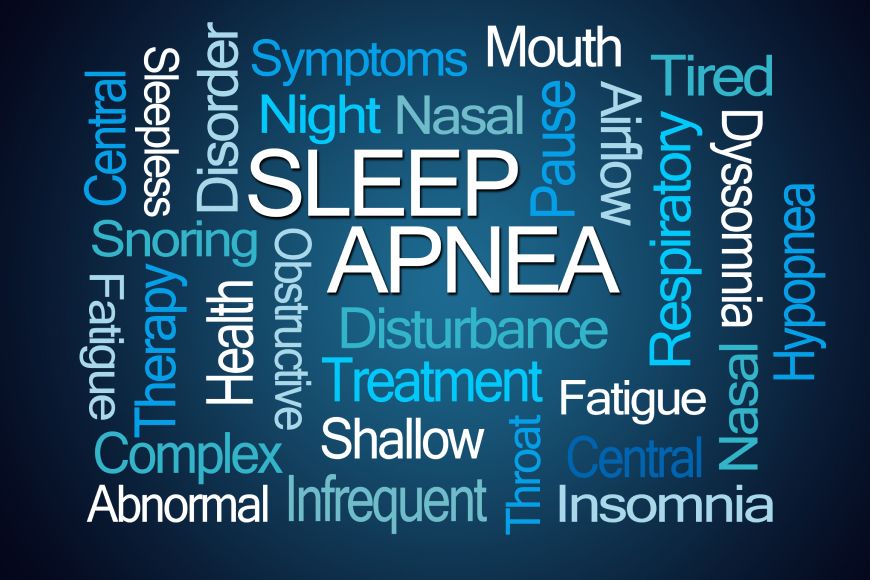By Sophia Deschler RN, BSN, RN | BSN
Updated on October 20, 2023
Published on August 18, 2023
Fact Checked

Get latest news, updates, and trends on mental well-being

If you’ve dealt with sleep apnea in the past, you know it can make you feel anxious at night and groggy during the day.
People with sleep apnea stop breathing briefly while sleeping, causing them to wake up frequently throughout the night. Although this condition is a burden, what’s worse is that few people are talking about the connection between sleep apnea and mental health.
Sleep apnea is more than just a sleep-related breathing disorder. Sleep apnea can affect the chemical balance in your brain. This disruption can exacerbate and even cause you to experience certain mental health conditions, such as anxiety.
Anxiety and sleep apnea have many similarities and can even feed into one another.1 Sometimes, one diagnosis may even be mistaken for the other. This is why you must be aware of sleep apnea symptoms and the potential impact on your mental health.
This article will delve into sleep apnea and anxiety, including the connection between the two and how to best overcome both conditions.
Sleep apnea is a sleep-related breathing disorder that causes you to stop breathing in your sleep.
Common symptoms2 of sleep apnea include:
Anxiety and sleep apnea can sometimes be mistaken for each other. Here are some reasons why:
Anxiety and sleep apnea directly affect one another. Sleep apnea can worsen your anxiety, but struggling with anxiety can also make it harder to deal with sleep apnea.
It is common to struggle with sleep issues such as insomnia when you have anxiety. If you have sleep apnea, you may be so anxious at night that you have a hard time falling asleep, or you wake up more frequently because you’re afraid of these frequent stops in your breathing.
Living with sleep apnea can be challenging. Finding an effective treatment approach is essential to restoring quality of life and reclaiming a healthy sleep pattern.
Benzodiazepines are a common type of medication prescribed for anxiety. Examples of common benzodiazepines include Xanax, Valium, Klonopin, and Ativa.
Some may wonder if these medications can help with anxiety related to sleep apnea. Keep in mind that although these medications may help treat anxiety, they can have harmful side effects–some of which are particularly worse for people with sleep apnea.
Benzodiazepines work by stimulating GABA receptors7 in the brain to decrease anxiety, relax muscles, and cause a sedative effect. In doing this, they can relax the airway, which could cause symptoms of sleep apnea to worsen and even lead to respiratory failure.8 Long-term use of these medications can also lead to dependency.
The effect of antidepressants on sleep apnea is not entirely clear.
One study9 found that a two-medication combination involving an anti-muscarinic drug (butyl bromide) and an antidepressant (reboxetine) reduced sleep apnea symptoms.
Other studies on this subject have either been inconclusive or found that antidepressants could worsen sleep apnea.10
If you struggle with sleep apnea and anxiety, it is important to find an effective treatment approach.
Cognitive-behavioral therapy for insomnia (CBT-I) may be a helpful approach to treating anxiety-related sleep issues. CBT-I is a method of psychotherapy (or “talk” therapy) that specifically aims to treat insomnia.11
Talk with a therapist about your issues, and they can recommend a personalized treatment approach. Recommendations vary from person to person, but examples include:
In treating sleep apnea, a comprehensive approach is bound to be the most effective. This means considering multiple factors to help treat your sleep apnea symptoms and anxiety.
You may have to work with multiple providers to get a personalized approach, such as your primary care doctor and a mental health professional.
Sleep apnea that goes untreated will worsen and may lead to other health conditions.
Untreated anxiety can hinder your quality of life, getting in the way of the things you love. Therefore, seek prompt treatment if you struggle with sleep apnea and anxiety.
The first step is being aware of symptoms and risk factors. If you’re struggling with your sleep, you need to get to the root of the issue. This will help you find a practical treatment approach.
Understanding sleep apnea symptoms and its connection with anxiety is a great starting point. Early intervention can help treat the issues before symptoms worsen and other complications develop.
Poor sleep habits take a major toll on your quality of life. If you’re struggling with sleep apnea, it is important to know the risks and seek treatment as soon as possible.
Because sleep apnea is linked closely with anxiety, you should seek professional treatment early to fully overcome the condition, reclaim your sleep routine, and feel your best.